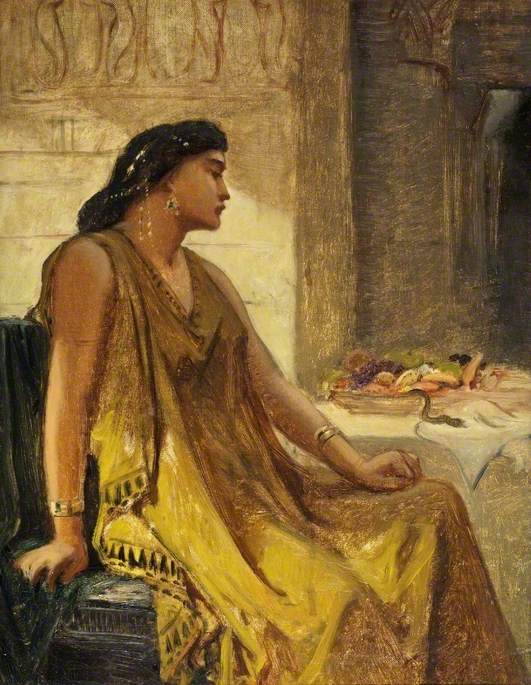Early Life and Ascension to the Throne
Cleopatra VII Philopator, the last active ruler of the Ptolemaic Kingdom of Egypt, was born in 69 BCE. She was a member of the Ptolemaic dynasty, a Greek family descended from Ptolemy I, a general of Alexander the Great who became the ruler of Egypt after Alexander’s death.
Cleopatra was well-educated and spoke several languages, including Greek, Egyptian, and Latin, setting her apart from her predecessors, who ruled Egypt but did not adopt its culture. When her father, Ptolemy XII Auletes, died in 51 BCE, Cleopatra co-ruled Egypt with her younger brother Ptolemy XIII, whom she was also forced to marry, following Egyptian royal tradition.
Power Struggles and Relationship with Julius Caesar
Cleopatra’s reign was marked by conflict with her brother. She was eventually exiled from Alexandria, but she sought help from Julius Caesar, the Roman general and dictator. According to legend, Cleopatra had herself smuggled into Caesar’s palace wrapped in a carpet, seeking his support to regain her throne.
With Caesar’s backing, she defeated her brother’s forces in 47 BCE, and Ptolemy XIII drowned while fleeing. Cleopatra then ruled Egypt with her younger brother Ptolemy XIV but held the true power.
Cleopatra and Caesar became lovers, and in 47 BCE, she gave birth to Caesarion (Ptolemy XV), whom she claimed was Caesar’s son. She traveled to Rome with Caesar, but after his assassination in 44 BCE, she returned to Egypt.

Alliance with Mark Antony
After Caesar’s death, Rome was plunged into a power struggle. Cleopatra aligned herself with Mark Antony, one of Caesar’s top generals, who ruled the eastern part of the Roman Republic. Their relationship was both romantic and political, strengthening Egypt’s position against Rome’s rival factions.
Cleopatra and Antony had three children and formed a powerful alliance. They fought against Octavian (later Augustus), Caesar’s adopted son, who sought control over Rome.
In 31 BCE, Octavian’s forces defeated Antony and Cleopatra’s navy at the Battle of Actium. Antony, believing Cleopatra had died, committed suicide. Cleopatra, facing capture by Octavian, also took her own life in 30 BCE, allegedly by allowing an asp (Egyptian cobra) to bite her.
Legacy of Cleopatra
Cleopatra’s death marked the end of Ptolemaic rule and the beginning of Egypt’s incorporation into the Roman Empire. Her legacy includes:
-
Strategic Leadership – She maintained Egypt’s independence for decades through diplomacy and alliances.
-
Cultural Influence – She embraced Egyptian customs, presented herself as the goddess Isis, and ruled as a pharaoh, despite her Greek heritage.
-
Romanticized History – Cleopatra’s relationships with Caesar and Antony became legendary, inspiring literature, art, and films.
-
Symbol of Power and Intelligence – She remains one of history’s most famous female rulers, known for her wit, charm, and political acumen.



